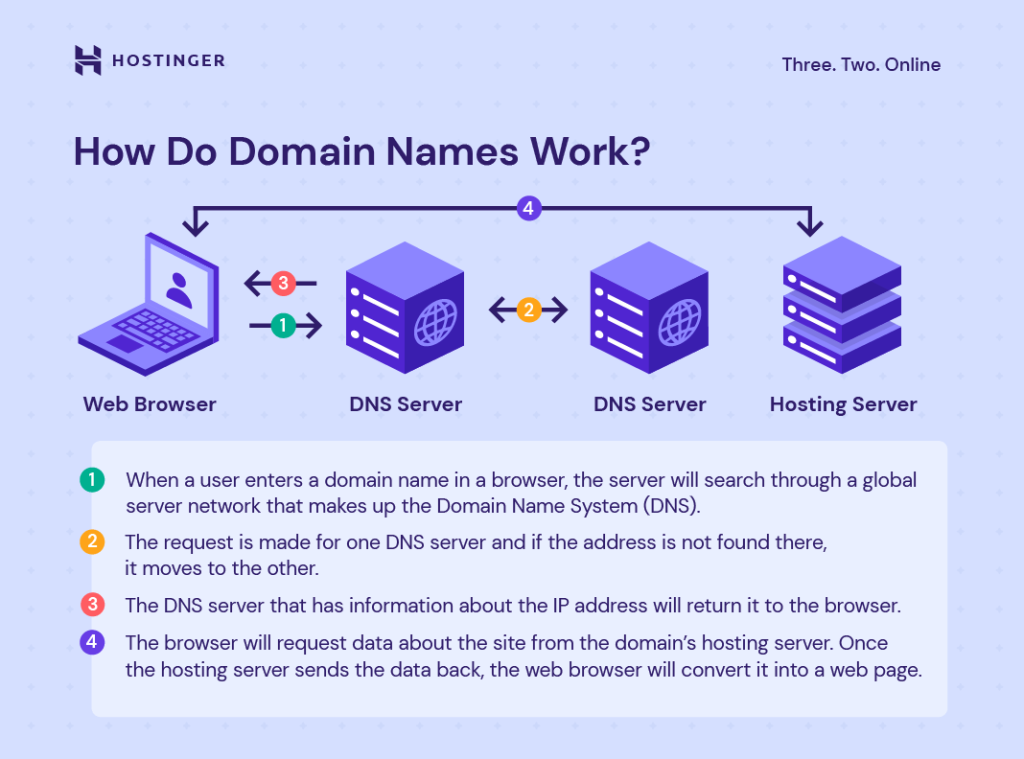Understanding Domain Name
A domain name is the address where Internet users can access your website. It is the unique identifier that distinguishes your website from others on the World Wide Web. In simpler terms, a domain name is your website’s name. It is what users type in their browser’s address bar to visit your site.
Choosing the right domain name is crucial for the success of your website. It not only serves as your online identity but also plays a significant role in your website’s search engine optimization (SEO) efforts. In this article, we will delve into the depths of domain names and explore how they work.
Parts of a Domain Name
A domain name consists of two main parts: the actual name and the top-level domain (TLD). The actual name is the unique, user-friendly part of the domain name that identifies your website. It is usually the name of your business, brand, or product.
The top-level domain (TLD) is the extension at the end of the domain name. Common TLDs include .com, .net, .org, .edu, and .gov. The choice of TLD can have an impact on your website’s visibility and credibility. It is essential to choose a TLD that is relevant to your website and industry.
How Domain Names Work
When a user enters a domain name in their browser, the browser sends a request to a domain name system (DNS) server. The DNS server then translates the domain name into an IP address, which is the numerical address of the website’s server. The browser uses this IP address to connect to the website’s server and load the web pages.
Domain names are unique and cannot be duplicated. They are registered with domain registrars, who manage the domain name system and ensure that each domain name is associated with a unique IP address. It is essential to renew your domain name registration periodically to prevent it from expiring and being released back into the pool of available domain names.
Choosing a Domain Name
When choosing a domain name for your website, it is important to select a name that is short, memorable, and easy to spell. Avoid using numbers, hyphens, or special characters in your domain name, as they can make it harder for users to remember and type correctly.
It is also advisable to choose a domain name that reflects your brand, business, or niche. This will help users associate your website with your brand or industry and make it easier for them to find and remember your site.
Conclusion
Understanding domain names is essential for anyone looking to establish a presence on the Internet. By choosing the right domain name and understanding how domain names work, you can set your website up for success and ensure that users can easily find and access your site.
Remember to keep your domain name simple, relevant, and memorable to attract and retain visitors to your website. With the right domain name, you can make a lasting impression on your audience and stand out in the vast expanse of the World Wide Web.
